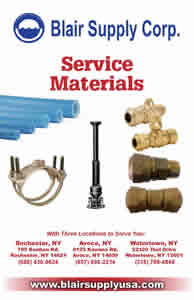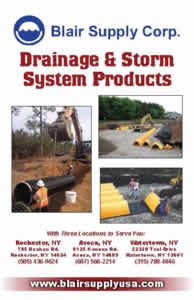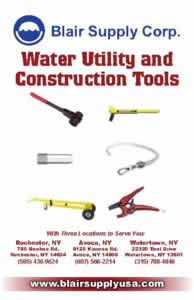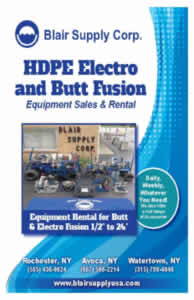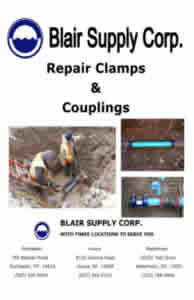Blog
Essential Details on Culvert Inspections

Culverts are an integral part of our infrastructure and their inspections are of the utmost importance. There are numerous details to take into consideration so that the inspection is safe and successful.
We’ll go over different types of culverts, their defects, and the most important steps of an expert inspection. Having the necessary knowledge and skills makes it possible to ensure the structure and functionality is adequate and any issues are dealt with. If you’re in Watertown or Rochester, we’ll also assist you in finding high-quality culvert pipes for sale.
What should I know about culvert inspections?
Although there are certain similarities and overlaps between bridges and culverts, these structures are not the same and their inspection shouldn’t be the same.
Here are the details about culverts that should be taken into consideration in the inspection process:
- Culvert types (closed and open-bottom culvert shapes):
- Circular
- Elliptical
- Box (rectangular)
- Pipe arch
- Arch
- High profile arch
- Low profile arch
- Arch concrete box
- Metal box
- Culvert materials:
- Metal
- Concrete
- Masonry
- Plastic
What does the culvert inspection process entail?
The inspection of culverts is an intricate process. It usually consists of the following steps:
-
- Inspecting the structures – following a checklist thoroughly, marking any defects, and rating the condition typically from good to severe
- Writing reports and providing documentation – explaining in detail what was found (e.g., any negative impact on the environment)
- Informing culvert owners of any issues that need to be dealt with – whether culvert rehabilitation or replacement is necessary
What issues can be discovered during an inspection?
During the inspection, the experts may find numerous issues. Here’s what the inspectors should pay attention to when it comes to corrugated metal pipes and pipe arches:
- Invert abrasion
- Invert corrosion
- Debris leading to pressure flow or roadway overtopping
- Local scour at outlets and/or long-term stream degradation
- Failure due to hydraulic inadequacy
- Crown deflection
- Sway
- Joint separation
- Embankment erosion
- Sediment buildup
- Passage of fish and other aquatic life
As for concrete box culverts, the structures should be checked for these problems:
- Spalled to rebar or exposed rebar
- Joint Failures
- Collapse abutment wall
- Scour along the walls on open-bottom culverts or at outlets
- Cracking
- Settlement
If masonry culverts need to be inspected, the following could be discovered:
- Joint failures
- Loss of mortar between masonry units
- Scour at an outlet or along walls on open-bottom culverts
- Piping of fill behind a masonry unit
When should culverts be inspected?
Typically, culverts should be inspected every five years or even sooner if there’s a known problem with them. Also, inspectors should schedule the inspection after periods of high flow, storms, or similar events to ensure their safety. They may decide to have follow-up inspections depending on any issues that were discovered so that they know whether the condition is improving or getting worse.
 Where in Rochester can you find top-rated culvert pipes for sale?
Where in Rochester can you find top-rated culvert pipes for sale?
If you’re searching for the leading distributor of culvert pipes in Rochester or Watertown, look no further than Blair Supply! We have six decades of experience under our belts and numerous satisfied clients including various organizations and municipalities.
Our company cooperates with industry-leading brands and manufacturers to ensure we provide you with high-quality materials and equipment necessary for functioning water and wastewater systems. We have assembled a team of qualified and experienced professionals that are experts in their fields and dedicated to providing our clients with expertise-based service.
Don’t hesitate to reach out to us, and we’ll gladly answer any of your questions regarding culverts and other sewer or drainage equipment. Whether you’re near George Eastman Museum or elsewhere in Rochester, give us a call today and let us take over your project meeting your needs and preferences.

 Where in
Where in 